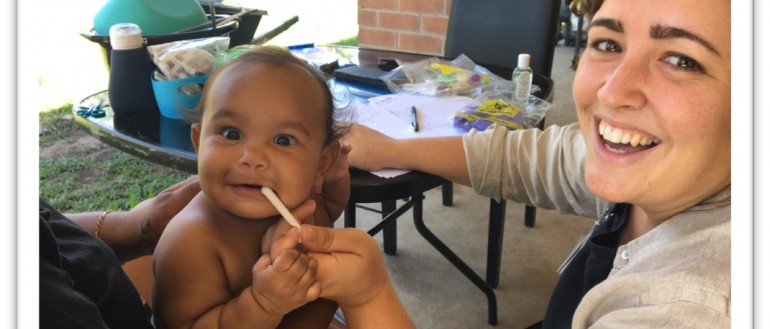Summary:
Acute respiratory infections (ARIs) are the most common cause of hospitalisation and preventable death among Aboriginal children in the Northern Territory (NT).
Vitamin D is essential for optimal immune function. Recently, we showed that the vitamin D levels of Aboriginal mothers falls during pregnancy such that 80% of NT Aboriginal infants are born with suboptimal vitamin D levels. Importantly, we found that having low vitamin D levels at birth was linked to an increased risk of childhood ARI.
The D-Kids clinical trial aims to determine whether weekly doses of vitamin D supplementation of during pregnancy (28-34 weeks gestation to birth) and infancy (from birth until age 4 months) can reduce the number of ARIs in the infants’ first year of life .
You can join the D-Kids study if you are:
- Aboriginal or Torres Strait Islander
- Pregnant
- Aged 17-40 years
- A resident of a participating community
What does the study involve?
- Taking the study medicine every week
- We will visit you 5 times
- Visits will be conducted at hospitals (Royal Darwin mostly), local health clinics or in the home.
- We will collect information from your medical records to monitor your health and to count your baby’s chest infections.
- We will collect some samples (blood, nose swabs, saliva, poo) to determine how vitamin D works.
Your information will always be kept private.
Chief Investigator:
Project Manager:
- Jennifer Goodall
Contact information:
- dkids@menzies.edu.au
Project dates:
- End date December 2024
Funders:
NHMRC 1138604
Collaborators:
Royal Darwin Hospital and Qld Pathology
NHMRC Clinical Trials Research Centre
Murdoch Children’s Research Institute
Sydney University
University of Queensland

